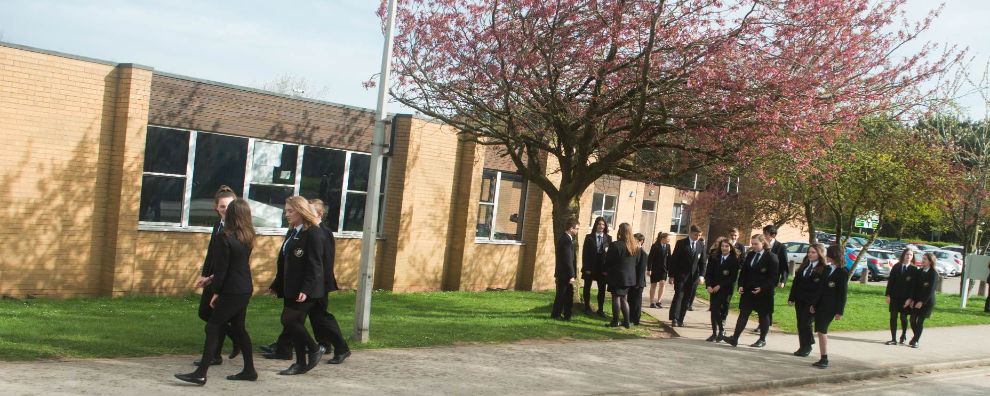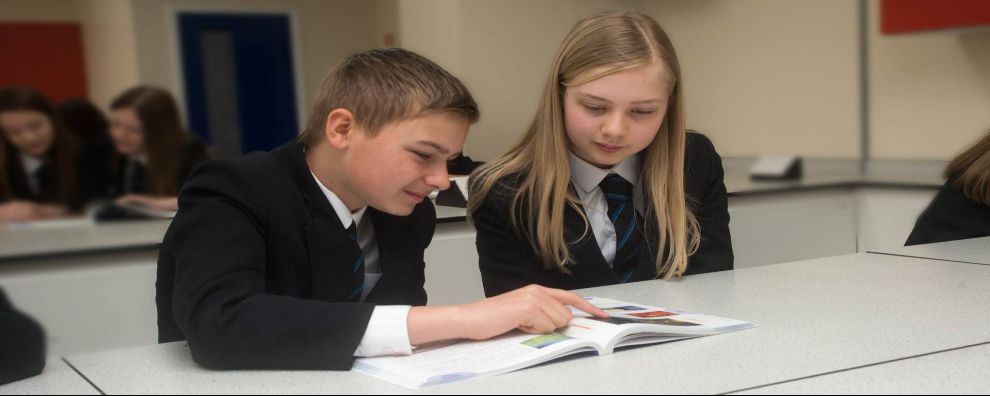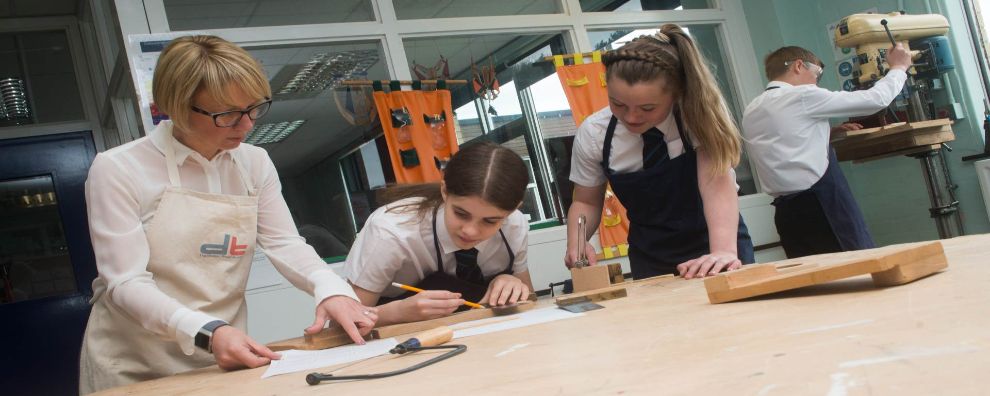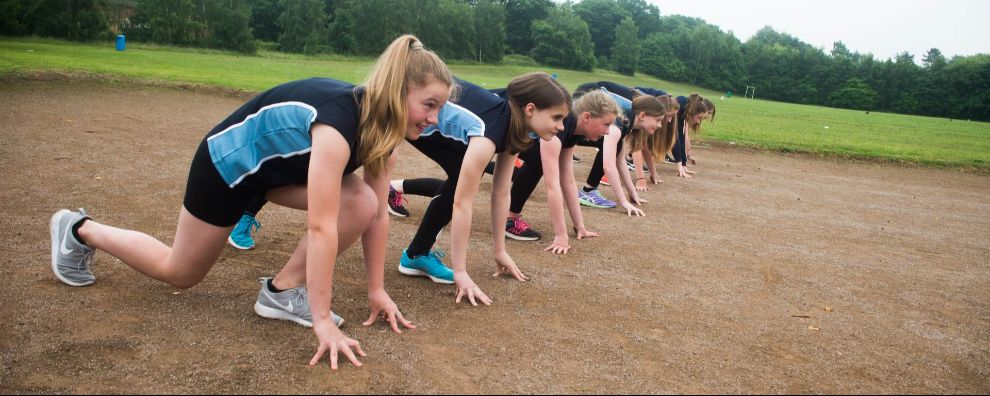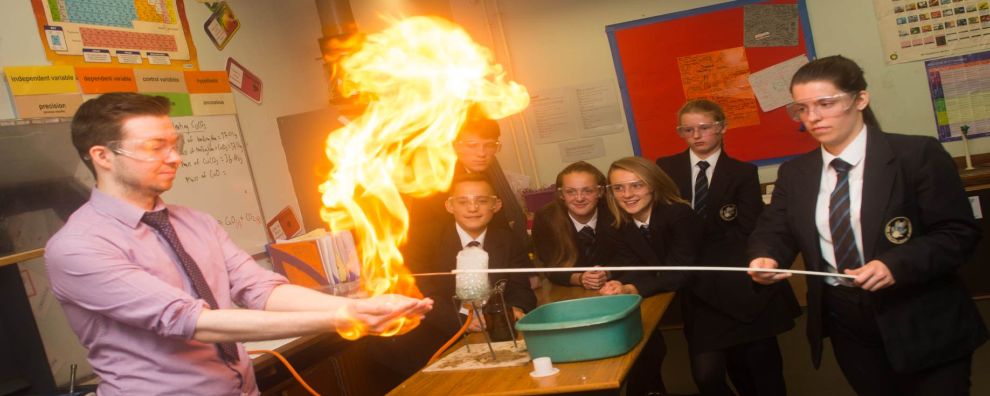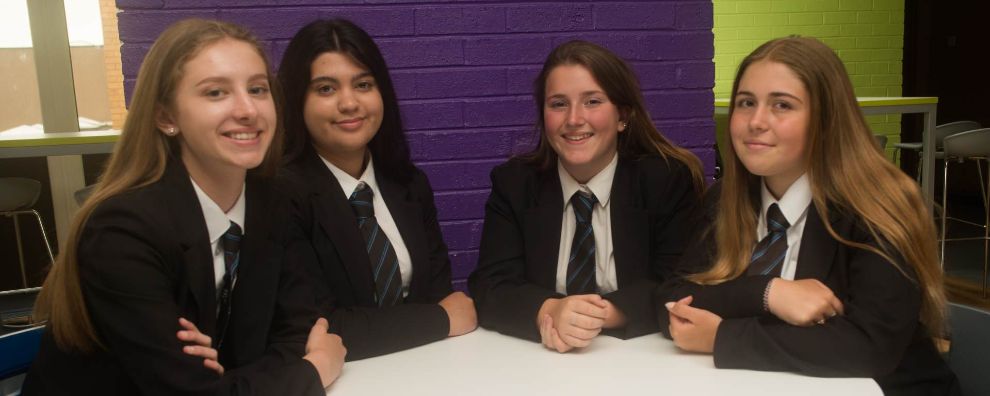Related Pages
- Curriculum Structure & Subjects
- Art
- Computing & Digital Literacy and Business Studies
- English
- SHARE (SOCIAL HEALTH AND RELATIONSHIP EDUCATION)
- Modern Foreign Languages
- Geography
- History
- Mathematics
- Performing Arts
- Physical Education
- Psychology (A level only)
- Science
- Design & Technology
- Learning Support SEN
- Super Curriculum
- Learning Journeys
Geography
The study of geography is about more than just memorizing places on a map.
It's about understanding the complexity of our world, appreciating the diversity of cultures
that exists across continents. And in the end, it's about using all that knowledge to help
bridge divides and bring people together.
Barack Obama
Aim
The aim of the Geography department is to generate and stimulate an interest in all of our students about the world around them and the way in which it works to help them understand that they can make a difference.
At Key Stage 3, we investigate a wide range of topics, designed to prepare our students for GCSE, but also broaden their minds and look closely at the word around them and the things that happen every day.
At Key Stage 4, students follow the AQA course, further building on the skills and concepts that they have been exposed to at Key Stage 3.
At Key Stage 5, students continue to follow the AQA course, once again building on the skills and knowledge already developed during the previous 5 years.
Geography is a popular option choice and students achieve good results. Students particularly enjoy the active style of learning that is a regular feature in geography lessons.
Key Stage 3 Information
During KS3 (year 7 & 8) students experience a wide range of geographical topics ranging from using OS maps to investigating the future of Africa. They study both human and physical geography and are constantly making links between the two.
In Year 7 students start by investigating what geography is and looking in detail at the school environment. We then move onto an introduction to map-skills, followed by investigating the changing economy of the world. We then study weather and climate before moving back to look at more complex map-skills. The year ends with an investigation into levels of development around the world.
In Year 8 students start off by investigating water – the water cycle, river processes and floods. We then move into a study of population before looking at hazards, with a particular focus on tectonics. After a unit of work investigating the challenges facing Africa, we take a journey to the coast to explore the processes happening here, before finishing the year by thinking about the future of the planet.
KS3 Assessment
Students work is assessed at least once during each topic. Personalised feedback and SAIL is provided with each assessment. The Subject Leader, who intervenes where necessary, monitors assessment internally.
Students are also assessed once a term, as to the assessment timetable. This assessment enables staff to see which modules students may need more retrieval or intervention.
KS3 Homework
Homework at KS3 is set three times per year, as per the homework timetable. Homework tasks will vary from research, to mini investigations that students need to conduct themselves, to creative tasks where students will be asked to apply their knowledge to a new scenario.
Key Stage 4 Information
AQA 8035
COURSE DESCRIPTION:
Geography breaks down barriers between Science and the Arts by considering how people and environments interact. The world is an ever-changing place and the subject helps equip pupils for the modern world. Geography is a dynamic subject reacting immediately to the changes instigated by political or natural events. The study of Geography will allow pupils to develop an awareness of current affairs and geographical data. The course will provide a clear overall view of the World in the first part of the 21st Century. The topics studied are contemporary, varied and lively and include:
Physical Geography Options:
- The challenge of natural hazards
- Physical landscapes in the UK
- The living world
Human Geography Options:
- Urban issues and challenges
- The changing economic world
- The challenge of resource management
Through the study of these topics pupils will develop important skills such as communication, graphicacy and cartography, debate and discussion as well as the development of literacy and numeracy.
Part of the course will involve all pupils taking part in fieldwork. The focus of this will be based on one of the core topics. This will be examined in paper 3, along with a pre-release topic.
Geography can give breadth of experience as well as balance to a pupil's choice of subjects at GCSE level.
KS4 Assessment
At the end of each unit of work, the students will be tested using past exam questions etc…They will also complete mock exams according to the whole school calendar.
KS4 Homework
At KS4, homework is set every two weeks. The focus is on quality of work not quantity. The work will either be completing past exam questions, preparing to answer exam questions in class or revision for factual tests and end of unit tests using the revision clock. On some occasions students may be required as part of their homework to complete some independent research.
KS4 fieldwork
At KS4 the fieldwork is based in and around the local area. One investigation looks at the impact of humans on a deciduous woodland ecosystem, while the second investigates the impact of the new Riverside development in Stafford on the wider Central Business District.
Key Stage 5 Information
AQA 7037
Course Description:
Your A Level geography course will cover both the physical and human environments and the complex interaction of processes that shape our world. It will also, importantly, show the applied side of the subject - how human intervention affects the environment and how people adapt and mitigate the effects of processes on their environment. This is complex and dynamic and varies from place to place depending on people’s resources, technology and culture. There is plenty of room for discussion and extended research which will help you become an independent thinker and learner. By the time you get to your exams, you will be able to show your understanding of a range of opinions and be able to illustrate your answers with case studies from local, national and international examples.
Course Content:
Component 1: Physical geography
Section A: Water and carbon cycles
Section B: either Hot desert environments and their margins or Coastal systems and landscapes
Section C: either Hazards or Ecosystems under stress or Cold environments
Component 2: Human geography
Section A: Global systems and global governance
Section B: Changing places
Section C: either Contemporary urban environments or Population and the environment or Resource security
Component 3: Geographical investigation
Students complete an individual investigation which must include data collected in the field. The individual investigation must be based on a question or issue defined and developed by the student relating to any part of the specification content.
Entry requirements: The standard entry criteria to study in the sixth form is an 9-4 or A*-C in at least seven different subjects, including mathematics which would usually be at grade 4 or above (equivalent to grade C in previous years).
To study other subjects already taken at GCSE you must achieve at least a grade 5 or C grade or above in that subject.
Assessment:
2 x written exams: 2 hours 30 minutes
- 96 marks each
- 40% of A-level each
3,000–4,000 words individual research assignment - 35 marks
- 20% of A-level
Field visits: Fieldwork is a requirement of the course – the actual trips will be decided / confirmed at a later date but may involve a short residential trip.
Future opportunities: Geography A-Level is a widely recognised qualification with most universities and employers. Geography students are seen to be well rounded with a good range of academic and practical skills which has a great benefit for a wide range of courses that can be studied at university. There is a wide range of jobs that graduates go into with Geography qualifications, including Advertising; Education; Environmental Management; Finance; Law; Marketing; Retail; Sales; Social/health services; Urban Planning. The study of Geography at A Level also helps you to develop the basic skills, understanding and knowledge that many employers are looking for.
Extra-Curricular Activities
There are various fieldwork activities offered throughout the course and we are currently exploring the possibility of an overseas fieldtrip.
The geography classrooms are always open at break, lunch times and after school for students to work on improving their geography. There is a member of the department available at each session.
Useful Links
https://www.bbc.com/bitesize/examspecs/zy3ptyc
https://www.bbc.com/bitesize/subjects/zrw76sg
https://www.aqa.org.uk/subjects/geography/gcse/geography-8035
https://www.aqa.org.uk/subjects/geography/as-and-a-level
https://www.theguardian.com/science/geography
https://sustainabledevelopment.un.org/?menu=1300
https://www.telegraph.co.uk/environment/
Staff List
The teaching and support staff are currently:
Mr R Allen Subject Leader for Geography rallen@westonroad.staffs.sch.uk
Mrs C Andrew Teacher of Geography candrew@westonroad.staffs.sch.uk
Mr E Plant Teacher of Geography eplant@westonroad.staffs.sch.uk

